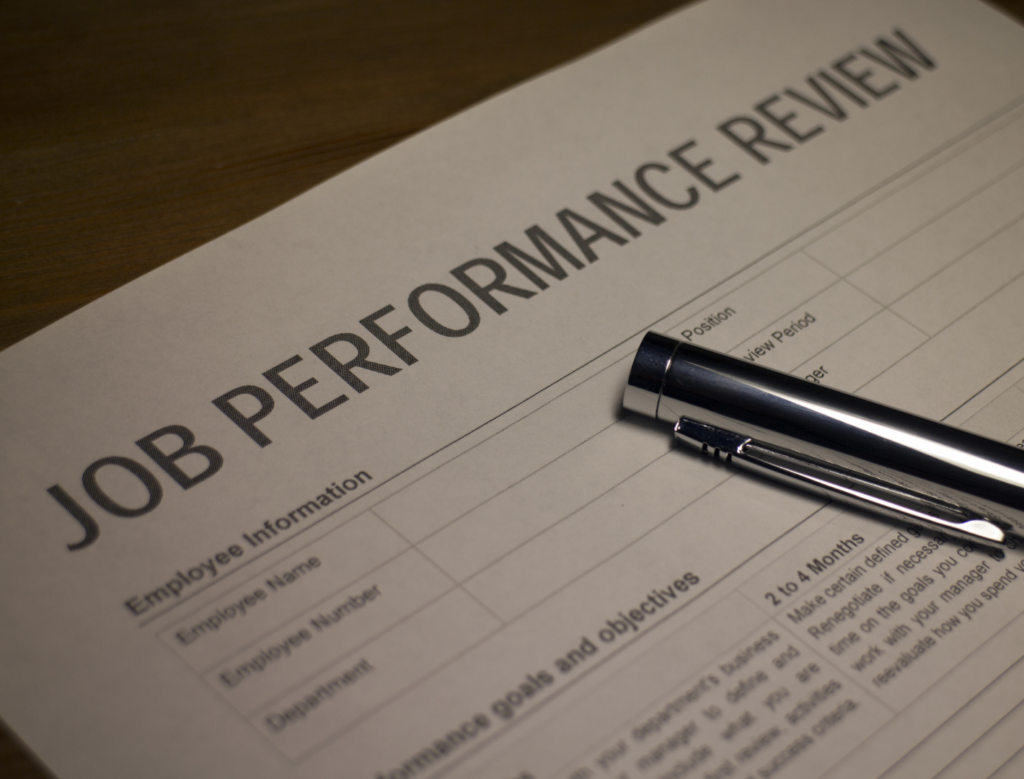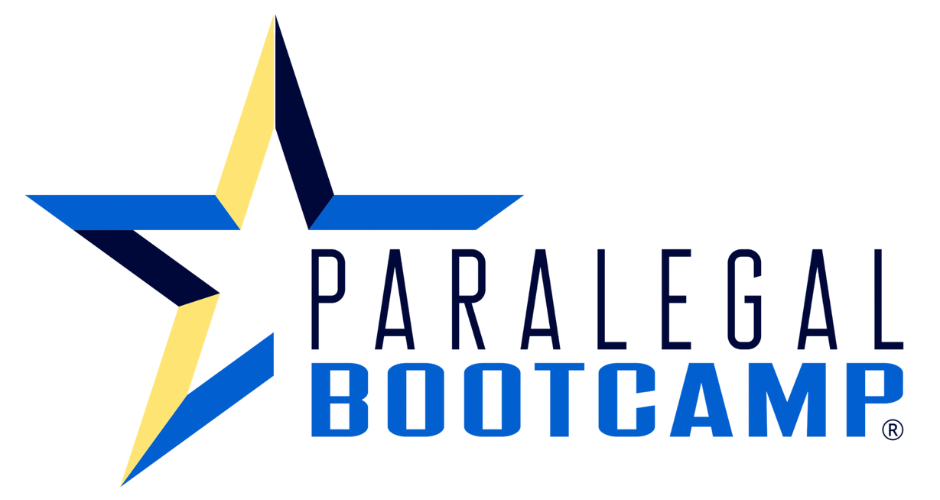Not sure how to take those end-of-the-year performance reviews?
Performance reviews are a necessary evil but changing how you perceive them overall, especially as paralegals, can be a total game-changer. There’s no time like the present to shift your mindset and see these reviews and overall self-reflection in your paralegal career as an opportunity to grow and shift gears to accomplish even more in the coming year.
Watch this paralegal training tip below!
I can’t believe 2022 is already here and we’re closing out the year in just a few days. I know for many paralegals, legal assistants, and other legal professionals; the end of the year is a time when you self-reflect and maybe even self-assess. If you haven’t already, take a moment to ask yourself: How did the year go? Did you get a good raise and a nice bonus?
Some places have moved away from doing paralegal performance reviews at the end of the year around the holidays which I would argue is for the best.
But, we’ve heard from many of you that your annual performance meetings and evaluations still come at the end of the year making it important for us to cover paralegal performance reviews and what they should really mean to you.

Master the 7 Habits of the Indispensable Paralegal with our comprehensive guide.
Even if you don’t have a formal performance review at your firm, this article gives you 4 highly valuable insights and takeaways you won’t want to miss.
Ready to start getting the most out of your paralegal performance reviews? Let’s jump in!
1. Start Calling Them Career Development Opportunities
The first step is a change in mindset. Instead of a performance review or performance evaluation, we need to start calling them career development opportunities.
Stop looking at them as when firms tell us everything we did wrong and why we’re only getting a 2% raise. Don’t dread them. We need to start looking forward to them as the perfect time of the year to self-reflect. More importantly, it’s the perfect opportunity to make a plan for the next year. You can decide what you’re going to do differently to improve and turn it into a career development opportunity.
So even if your employer still calls it a performance evaluation, in your mind, it’s a career development opportunity.
Start celebrating your paralegal success with a better way to measure it.
2. Be Prepared for that Meeting With Your Supervisor
It’s time to start looking at this evaluation as a one-way street or passive process. Instead of an observer, you want to be an active participant because this is your career! This is not just a 9 to 5 job and your career development plan is in your hands. Own your career.
So how do you become an active participant? Prepare.
The way to prepare starts right after your last meeting with your supervisor. You’ll want to track your accomplishments throughout the year instead of trying to remember everything right before the meeting.
Save those emails and voicemails in one folder – you know, the ones from the client or attorney thanking you for a great job on a project or for working all weekend on getting a transaction closed. Save them all – because you’re not going to recall them all, especially if they happened early in the year and your meeting doesn’t happen until December.
Create a “brag folder”
It can host information on things like:
-
- Paralegals or legal assistants you’ve mentored
-
- Courses you’ve taken
-
- Courses you’ve taught
-
- Projects on other teams that you’ve pitched in to help
-
- In-house training you’ve attended or taught.
Put these things into an ongoing career journal to use when updating your resume.
Some employers even have self-evaluations as part of their end-of-year review process. If they do, that’s the perfect opportunity to pull out your brag journal and start sharing them inside the self-evaluation form.
Remember to Celebrate Your Wins!

Back when I was a paralegal manager, the firm had the paralegals complete a self-evaluation form that was the exact same evaluation form that the attorneys were using to evaluate the paralegals they worked with. It was like 10 pages of questions, but to be frank it was an utter waste of time because it wasn’t really a reflection time and goal-setting time.
Self-Reflection Questions
It would have been better served if the paralegals were asked a few self-reflecting long-form questions like:
-
- What went well this year?
-
- What could I have done better this year?
-
- Did I achieve the goals I set for myself last year? If not, why not?
-
- What goals am I setting for myself this year? How do I plan to accomplish those goals?
These are questions you want to ask yourself, regardless of whether or not your employer has a formal review process or a self-evaluation form. AND if you do have a formal process, once you’ve answered these questions honestly, they are excellent talking points to bring into the meeting with your supervisor.
Imagine how productive of a conversation you’d have if you were prepared to talk to your supervisor about how your year was, your accomplishments (that they might not know about), and what your plan is to improve your weaknesses.
When heading into the meeting – you’ll want to have an open mind and be willing to accept that you’re not perfect.
You have to be open to constructive criticism. In order to do that, you have to make sure that you don’t have a defensive attitude, or you won’t hear the criticism as constructive, but as an attack on you personally.
If there is some criticism – something that someone thinks you could improve on or that blindsides you – rather than immediately blurting something out, take a deep breath. Find clarity on that criticism with these questions.
-
- Can they give you a specific example of what the attorney means by that?
-
- Does the manager have any suggestions on what you can do to improve in that area or how to handle it better next time?
Or, if you’re not ready to respond politely, you could say “I had no idea that was coming. Could I have some time to digest what that and set a follow-up meeting to discuss this further?”
Preparation and taking criticisms with grace shows the professionalism that every attorney looks for and values in a paralegal.
3. Get a Copy of Your Performance Evaluations in Advance
Being able to get this evaluation ahead of time gives you an opportunity to digest the information before meeting with your supervisor.
It may not be the norm where you work, but it can’t hurt to ask. It used to bother me, when I was a paralegal manager, that it wasn’t the firm’s protocol and I hated it.
I was told – “this is how we do it with the rest of the staff, so this is how you have to do it with your paralegals.” The protocol was simply scheduling the meeting, meeting with the paralegal, and going over the performance evaluation forms with them with it being the first time they are ever seeing and hearing what their attorneys had to say.
To help with this – if there was ever a really low rating in ANY area for anyone, and it was something that was never brought to my attention throughout the year – then I would go talk to that attorney. I would ask “have you talked to this paralegal about this?” and if their answer was no, I would ask them for specific examples of why they gave them a low rating in that area.
This was in addition to reminding the attorney that they couldn’t wait until the end of the year to bash their paralegal in a written performance review. If they didn’t want to handle it, then they needed to bring it to me. It’s just not fair to the paralegal to not offer feedback throughout the year to give them an opportunity to improve. But I’ll get off my soapbox.
If you can get a copy in advance of your meeting, take the time to go through it and highlight any of the areas that you received that are less than optimal. And before you get defensive, take the time to truly ask yourself: could I do better in those areas? It’s important to remember that even your greatest failures can benefit your paralegal career.

4. When Setting Your Goals, Commit to the Actions Not the Outcome
It’s that time of year when everyone is looking forward to a fresh start and setting goals or new year’s resolutions. There will be so many articles out there on this topic this week, but these tips are too important not to share.
When you’re setting next year’s career goals, remember that life happens. The big question is how do you set big goals without setting yourself up for not hitting that goal and feeling like the year was a failure?
Commit to the action it takes to get to the goal, but don’t attach yourself to the outcome. This will ensure that you’ll still benefit from all of the actions you took to get closer to reaching it.
For example, let’s say you’re a litigation paralegal who wants to set a goal next year to get your ACEDS certification. You take some eDiscovery courses, you get involved at a deeper level on your eDiscovery projects, you start attending the local Women in eDiscovery meetings, then later in the year you start taking a prep course.
But life happens like a family member getting sick when you are their caretaker and your free time in the evenings and weekends are no longer available for that prep course, so you don’t sit for the exam.
All of the actions that you took throughout the year have significantly increased your eDiscovery project management skills and allowed you to meet some great people and maybe even find a mentor who has taken and passed the certification exam.
That’s so valuable to your career! So, commit to the actions, but without attaching their only value to the outcome.
Something else – and this I heard on a podcast for entrepreneurs a few weeks ago – he said, “your level of success is directly linked to your personal development.” He was talking about Parkinson’s Law – that theory that work expands to fill the time available. For example, you know you have 2 hours to get that brief e-filed. Even though you might have been able to get it done in 1 hour, you spend the full 2 hours doing it.
It’s the same with your level of career success being directly linked to your personal development. As your personal development expands and grows, your career success will fill the space that’s available for it. For this new year, try using the “SMARTER” goal-setting method to see how much you can accomplish.
With these tips for getting the most of your paralegal performance reviews, I hope you’ll start to see them as opportunities to grow in your career and achieve more in the coming years. Whether you just had one, want to prepare for next year’s, or have one coming up soon, it’s important to understand the role that this type of reflection plays in pushing your paralegal career forward.
I wish each and every one of you the happiest new year – a new year that brings all of your dreams to life. I am so thankful to our readers and look forward to sharing even more valuable information for your paralegal career in the coming year.
Meet the Author

Ann Pearson is the Founder of the Paralegal Boot Camp, and host of the Paralegals on Fire! Podcast Show, and passionate about promoting the paralegal profession.
Ann spent 20 years working as a paralegal manager and a litigation paralegal before opening the Paralegal Boot Camp in 2010.
Ann’s training programs focus on adding immediate value to a paralegal’s career and bridging the gap between what a paralegal learns in school and what they actually do on the job.
Visit the About Us Page to learn more about why Ann started the Paralegal Boot Camp.


























